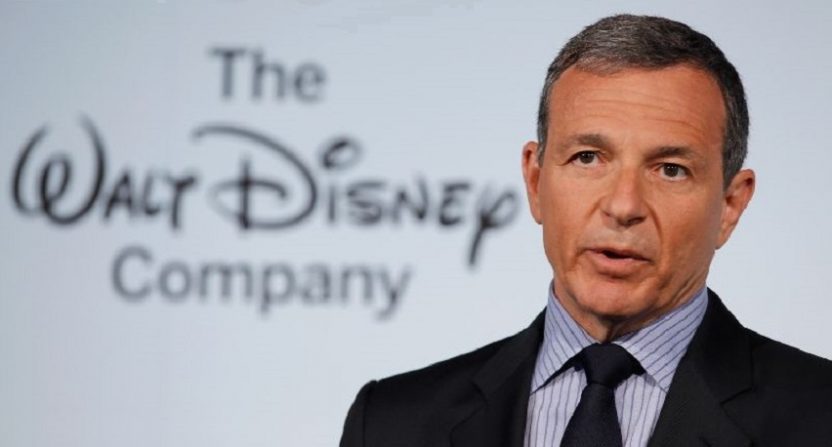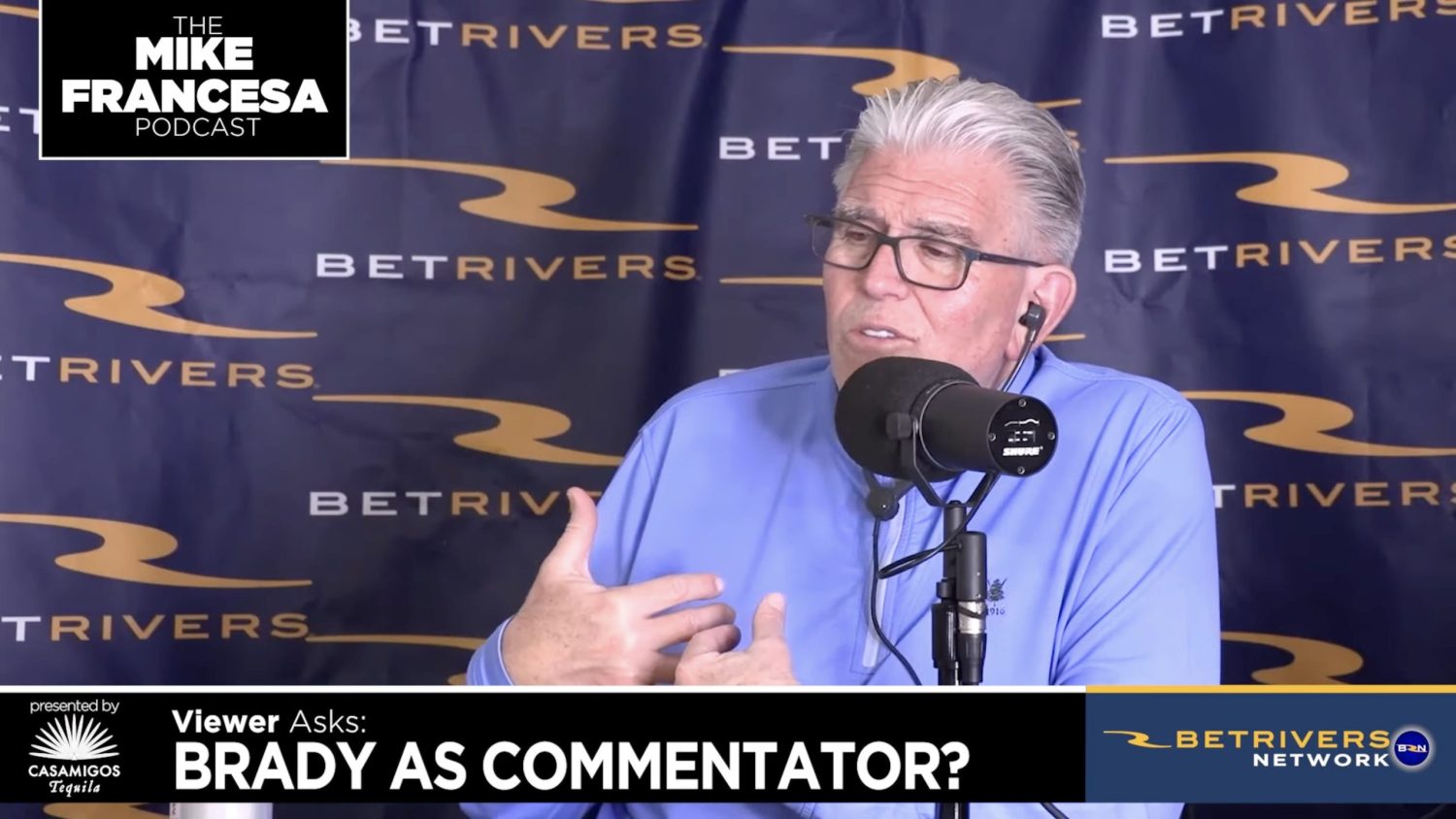The ongoing carriage dispute between Disney and Charter (which owns and operates the Spectrum-branded cable and internet offerings) is a massive one for both companies and beyond. Charter is the second-largest cable provider and the third-largest multichannel video programming distributor (MVPD) in the U.S., with an estimated 14.7 million pay-TV subscribers, so losing them and their per-subscriber fees (plus the ratings those subscribers bring) is a big deal for Disney, and for Disney channels like ESPN.
As usual in carriage disputes, both sides are making bold claims. But one of the strangest yet came from a PR statement Disney posted on their corporate website Sunday, which initially claimed that ESPN somehow had 53 of the top 100 telecasts on Charter last year, and all of the top five. Here’s the key part of that:
Losing ESPN is a major issue for consumers since it’s one of the most popular channels. In fact, ESPN aired more than half (53) of the top 100 telecasts in Charter homes during the past year, per Nielsen, the leading audience measurement, data and analytics company. That includes all 5 of the top 5.
Update: Disney has since updated that piece to read “ESPN aired more than half (53) of the top cable 100 telecasts in Charter homes during the past year, per Nielsen, the leading audience measurement, data and analytics company. That includes all 5 of the top 5.” That is the correct claim, as per our original analysis below. Our original post continues below:
The problem for Disney is that’s not even close to true for “the top 100 telecasts” and “all 5 of the top 5,” unless Charter homes are wildly different from the rest of the country and refuse to watch events like the Super Bowl and the NFC and AFC championships. There’s a full list of Nielsen’s top 100 telecasts of 2022, published by Sports Business Journal‘s Austin Karp in January, and the first mention of ESPN is at No. 33 (a NFC wild card playoff game also shown on ABC and ESPN2), with their first ESPN event not shown on broadcast TV (the College Football Playoff title game) at No. 35.
The actual top five events were all NFL games (the Super Bowl, three playoff games, and a Thanksgiving game) that aired on NBC, Fox, and CBS, and 82 of the top 100 were NFL games. ESPN had some of those, with many of those in conjunction with ABC. But counting every ESPN mention (both games also on ABC and only on cable) in that top 100 only produces 11, a far cry from 53.
Now, where this is probably actually accurate is if Disney had cited “the top 100 cable telecasts” rather than “the top 100 telecasts.” If we limit this to cable-only, that seems to be about right. As above, we have overall data from that SBJ list rather than Charter-specific data, but ESPN is mentioned at No. 33, No. 35, No. 36 (a CFP semifinal), No. 41 (the other CFP semifinal), and Nos. 48, 49, 51, and 56 (two Saturday Week 18 NFL games and two Monday Night Football games, all shared with ABC).
The highest cable-only non-ESPN events on that list are Nos. 64 and 65 (the men’s NCAA Tournament semifinal and final on TBS/TNT/truTV). There are two Nickelodeon cable broadcasts of NFL games above that at No. 6 and No. 34, but those were both shared with CBS (and CBS drew the majority of the audience for them). So it’s probably fine to say that ESPN had “all 5 of the top 5” cable telecasts on Charter. But they certainly did not have all 5 of the top 5 telecasts. (And it should be noted that “telecast” does not mean “cable-only,” unless there are different dictionaries used inside Disney’s headquarters: Merriam-Webster says to telecast is “to broadcast by television” as a verb (the usage here is of the related noun), and cites examples including references to programs aired on both broadcast and cable networks.
And “top 5 telecasts” doesn’t even work under qualifications of distribution, as MVPDs like Charter still distribute broadcast networks. And they pay significant retransmission fees to do so (which is a huge part of those broadcast networks’ bottom lines). That’s why ABC is no longer available on Charter as well during this dispute. Yes, people can obtain broadcast networks through other means, particularly antennas, but a lot of broadcast network viewing still comes in MVPD packages. And that broadcast viewing (which accounts for most of the NFL) still dwarfs cable viewing (especially around the NFL), as that top-100 list illustrates.
As noted, carriage disputes often involve grandiose claims from both sides. And Charter has certainly made their own as well, especially with their stance that Disney should offer their over-the-top streaming apps (Disney+, Hulu, and ESPN+) for free to Charter customers due to programming overlap. Yes, there’s some overlap (especially on entertainment content on the first two, less so on ESPN+, but that’s growing), but those services still carry a lot of exclusive content, and the Disney point in this release that that approach “does not make economic sense” has some merit.
There also are debates over just how much Charter subscribers consume Disney content. Charter has claimed only 25 percent of its subscribers “regularly” engage with Disney content, and only half of those are “highly engaged,” while Disney pushed back here with “In the average month, 71 percent of Charter subscribers tune into Disney’s networks or stations” and “Charter subscribers watched more than 3.3 billion hours of content on Disney networks and stations over the past year.” Unlike the top telecasts claim, though, all of those things can potentially be true, with it all depending on the definition of “regularly” and “highly.”
Every carriage dispute comes with significant spin on both sides. And this is a high-stakes dispute for not Disney and Charter, but for the entire TV industry. So it’s understandable that everyone involved is eager to advance their talking points and try to swing public opinion their way. Charter is definitely doing that as well. And many of the points in that Disney release aren’t particularly disputed: yes, this is a big sports weekend, yes, Charter subscribers are missing out on college football and US Open tennis (and many are vocalizing that discontent on Twitter), and yes, they’ll miss out on Monday Night Football beginning next week as well (unless they buy an antenna, as that opener will also be on ABC) unless this dispute is resolved.
But it simply is not accurate that ESPN aired the five most-watched telecasts of 2022. (Unless Charter subscribers somehow uniquely live in a universe without the NFL, but that seems highly unlikely.) The likely explanation is that the Disney figure drafting this statement forgot the “cable” qualifier here. But that’s a rather important qualifier to omit.







